15 Restaurant Chains Facing Bankruptcy In 2024

The restaurant industry is as unpredictable as ever. While some chains are struggling to keep up with their competitors, others are still dealing with the aftermath of the pandemic. For several, financial difficulties have been mounting for years, leaving them with no other choice but to file for bankruptcy.
The year started with one Popeyes franchisee declaring Chapter 11 bankruptcy, followed by a string of chains filing for the same financial protection. These primarily consisted of smaller chains like New York-based Sticky's Finger Joint, though one of highly publicized bankruptcies was filed by national seafood giant Red Lobster.
With these recent filings, multiple restaurant chains have had to streamline their restaurant portfolio by shuttering locations. Read on to discover all the restaurant chains that have sought bankruptcy protection in 2024.
TGI Fridays

Weeks after reports first emerged that TGI Fridays was preparing for a potential bankruptcy, the casual dining chain announced a Chapter 11 filing on Nov. 2. The bankruptcy only affects the 39 company-owned TGI Fridays locations, which have received funding to continue serving customers during the Chapter 11 process. Franchised TGI Fridays restaurants will also remain open.
The bankruptcy filing capped off a difficult period for the chain, which has struggled for years with sales growth and closures. The company recently lost control of most of its assets after it failed to file documents to bondholders on time. Soon after, the United Kingdom-based TGI Fridays operator Hostmore backed out of plans to purchase the chain, closed 35 restaurants, and filed for the United Kingdom's equivalent of bankruptcy.
TGI Fridays said it intends to use the bankruptcy process to restructure its finances and "explore strategic alternatives in order to ensure the long-term viability of the brand."
"The next steps announced today are difficult but necessary actions to protect the best interests of our stakeholders, including our domestic and international franchisees and our valued team members around the world," Rohit Manocha, executive chairman of TGI Fridays Inc., said in a statement. "The primary driver of our financial challenges resulted from COVID-19 and our capital structure. This restructuring will allow our go-forward restaurants to proceed with an optimized corporate infrastructure that enables them to reach their full potential."
Oath Pizza
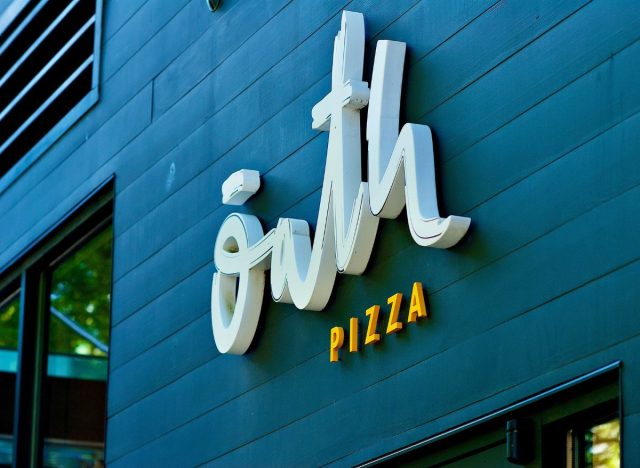
The fast-casual chain Oath Pizza officially filed for Chapter 7 bankruptcy in October, a move that entails the liquidation of the company's remaining assets. The filing comes a year after Oath Pizza abruptly shuttered all of its corporate-owned locations after financial challenges and a big legal battle between company investors and an executive attempting to purchase the chain, Restaurant Business Magazine reported. (That lawsuit was settled earlier this year).
Oath Pizza operated 17 locations across Massachusetts, New York, Pennsylvania, California, and other states in its heyday, but only a few independent franchised locations remain in operation currently, per Nation's Restaurant News.
BurgerFi
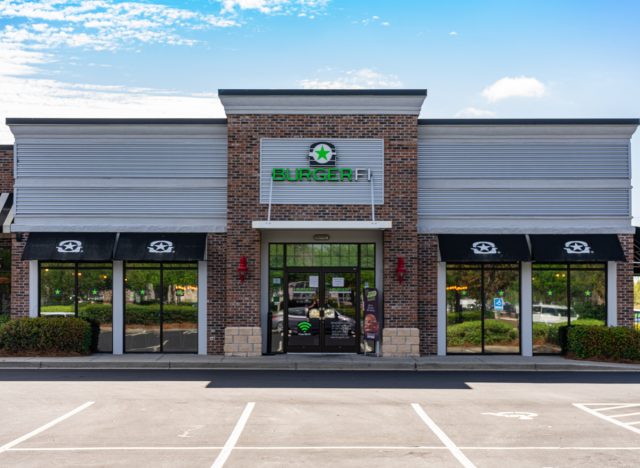
On Sept. 11, BurgerFi International, Inc., the parent company of BurgerFi and Anthony's Coal Fired Pizza & Wings, announced that it has filed for Chapter 11 bankruptcy to "preserve the value of its brands for stakeholders." The news comes less than one month after the company noted in a filing with the U.S. Securities and Exchange Commission (SEC) that it may seek bankruptcy protection after ongoing financial difficulties. According to the bankruptcy filing, BurgerFi estimates that it has between $50 million and $100 million in assets and $100 million to $500 million in liabilities.
"BurgerFi and Anthony's Coal Fired Pizza & Wings are dynamic and beloved brands, and in the face of a drastic decline in post-pandemic consumer spending amidst sustained inflation and increasing food and labor costs, we need to stabilize the business in a structured process," Jeremy Rosenthal, chief restructuring officer of BurgerFi International, Inc., said in a press release.
Roti
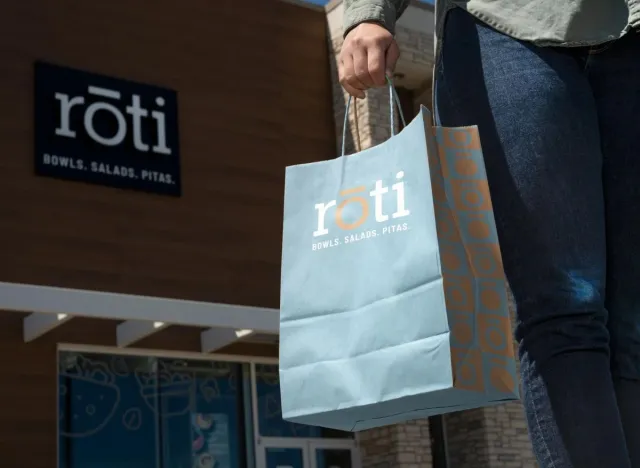
Following mass closures and a drop in system sales last year, the fast-casual Mediterranean chain Roti officially announced a Chapter 11 bankruptcy filing on Aug. 23. The company blamed the move on various financial factors, such as higher costs, the mixed performance of its restaurants, and tough market conditions.
Roti said it will use the bankruptcy process to seek new investors or a buyer, as well as reorganize its finances. It plans to continue operations as normal at its remaining 19 locations, which are spread throughout Chicago, Minneapolis, and Washington, D.C.
"Bankruptcy is a process designed to provide companies like us with the tools to stay open, keep our exceptional team members employed, and explore future prospects for Roti. We expect our loyal, flavor-seeking guests to continue to enjoy us while we tackle this necessary next step in our journey," CEO Justin Seamonds said in a statement.
World of Beer
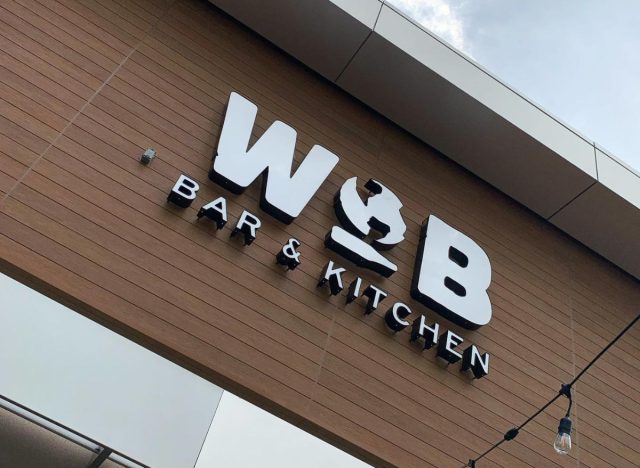
World of Beer Bar & Kitchen was once one of the country's fastest-growing casual-dining brands, but the chain has fallen on hard times since its heyday a decade ago. Restaurant Business reported that the chain has filed for Chapter 11 bankruptcy in August, thanks to its growing debt. It shuttered 14 locations over the past year and is now down to 33 restaurants, mostly located in the southeast.
The chain blossomed and expanded during the craft beer boom in the early 2010s. However, according to the company (and gleaned in the court documents), its franchisees didn't always have the industry expertise required for success and the concept crumbled under mishandled ownership and various lawsuits that cost it millions of dollars. Then the pandemic hit and made the road even tougher. The company hopes to restructure and focus on its profitable locations.
Buca di Beppo
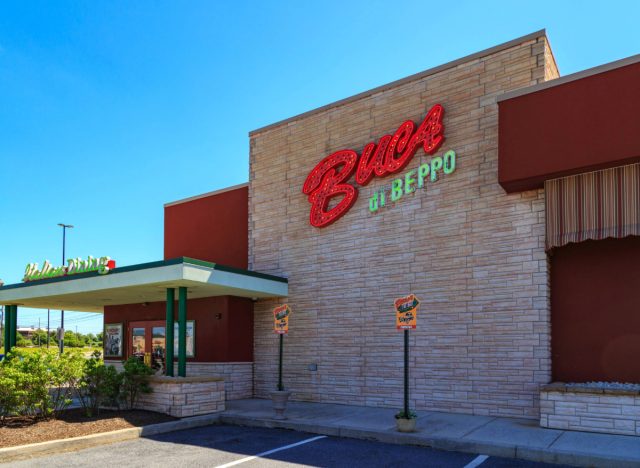
At the end of July, Buca di Beppo made headlines after closing 13 locations. Now, the chain is looking to position itself for success by filing for Chapter 11 bankruptcy. The company said decreasing sales, increasing costs, ongoing staffing challenges, and changes in consumer preferences were among its issues, according to Nation's Restaurant News.
The bankruptcy filing is intended to optimize operations and enhance the dining experience for customers. Going forward, Buca di Beppo will continue to operate its 44 core locations, which the company is "restructuring." The chain is also opening one additional location.
Gotham Restaurant

After 40 years in business, the iconic New York City fine dining eatery Gotham Restaurant is contending with bankruptcy and has temporarily closed its doors to customers. Gotham Restaurants LLC, the restaurant's parent company, filed for Chapter 11 bankruptcy protection on July 24. The bankruptcy filing listed hundreds of thousands of dollars in debt, including nearly $484,000 owed just to the New York State Department of Taxation Finance Bankruptcy/Special Procedures Section, according to Nation's Restaurant News.
Meanwhile, Gotham temporarily halted its lunch and dinner services after recently losing $45,000 in an alleged cyberscam. Co-owner Cassandra Csencsitz told Eater New York that they had already been running "close to the bone," so the loss of so much money forced them to stop operating temporarily.
Though lunch and dinner services have yet to resume, Gotham has reopened its bar and is currently serving cocktails and bites from Tuesdays through Fridays from 5 p.m. until closing time. The restaurant's website says it's "working to reopen this September."
Tender Greens & Tocaya
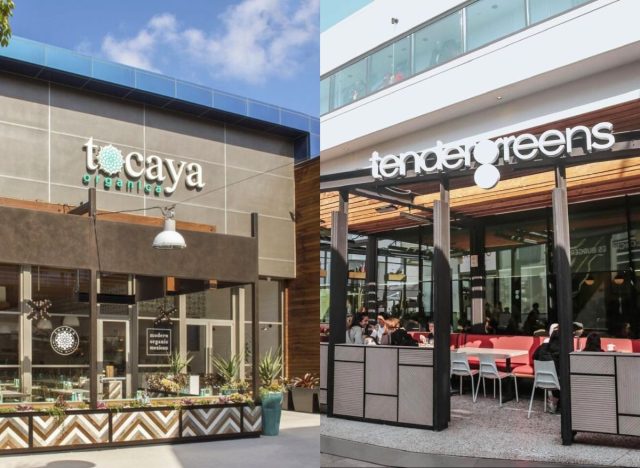
One Table Restaurant Brands—the parent company of the salad chain Tender Greens and the Mexican chain Tocaya—officially filed for Chapter 11 bankruptcy on July 17. In court documents, the COVID-19 pandemic, rising interest rates, and elevated costs were among the issues that the company blamed for its financial woes, Restaurant Business Magazine reported.
One Table is currently seeking $3 million from the investment company Breakwater Management LP to continue operating as usual while it looks for a buyer. In good news for fans, the company doesn't plan to close any of its locations for now. Tender Greens' currently operates 24 restaurants in California, while Tocaya operates 15 across California and Arizona.
"We ran every possible option to the ground in order to avoid bankruptcy, but ultimately, restructuring our debt is the best decision for our team members, valued vendor partners and loyal guests," One Table CEO Harald Herrmann said in a statement, per Restaurant Business Magazine. "We expect to emerge from this restructuring process stronger and better positioned to prosper in our hyper-competitive industry."
Melt Bar & Grilled
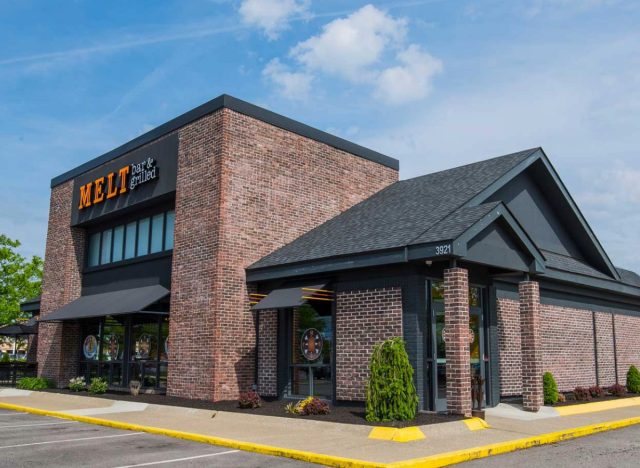
On June 14, Melt Bar & Grilled, a Cleveland, Ohio-based restaurant chain known for its gourmet grilled cheese sandwiches, filed for Chapter 11 bankruptcy. According to the filing, the company has been struggling to pay its landlords, vendors, and service providers. Court documents state that the rising cost of goods and labor, as well as "major shifts and changes in the service industry" have negatively affected the chain's operations.
Additionally, Melt will close its Akron and Mentor, Ohio, locations this month, according to WKYC. After these close, the chain will just have its Lakewood, Ohio, restaurant, along with its locations at Cleveland's Progressive Field and Case Western Reserve University. Melt will temporarily close its Lakewood location on Sept. 2 for one seven days for renovations and additional menu and branding updates. In 2024, Melt also shuttered locations in Cedar Point, Independence, and Avon, Ohio.
Rubio's Coastal Grill
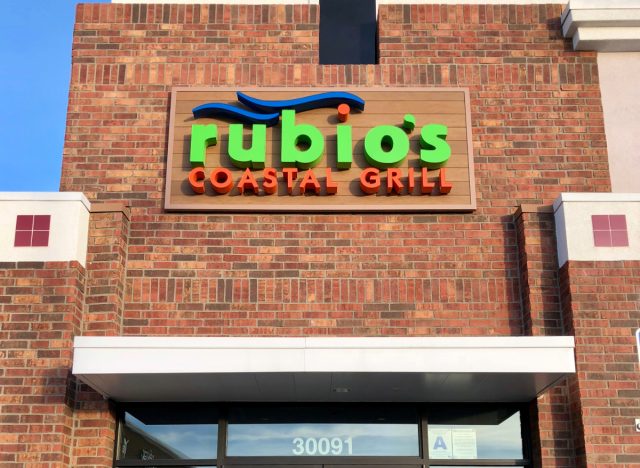
Just a few years after declaring bankruptcy during the COVID-19 pandemic, Rubio's officially announced its second Chapter 11 bankruptcy filing on June 5. The chain attributed the move to rising costs, declining customer visits, and the new $20 minimum wage for fast-food workers in California.
While Rubio's closed 48 underperforming California restaurants in May to improve the health of the business, the closures didn't solve its financial woes.
"Despite the Company's best efforts to right-size the company, the continued challenging economic conditions have negatively impacted its ability to meet the demands of its debt burden," Nicholas Rubin, Rubio's chief restructuring officer, said in a statement.
Two months after filing for bankruptcy, Rubio's received a new owner. The chain has been sold to its lender The Original Fish Taco LLC, an affiliate of TREW Capital Management restaurant, for $40 million.
Rubio's currently operates 86 locations in California, Arizona, and Nevada.
Red Lobster
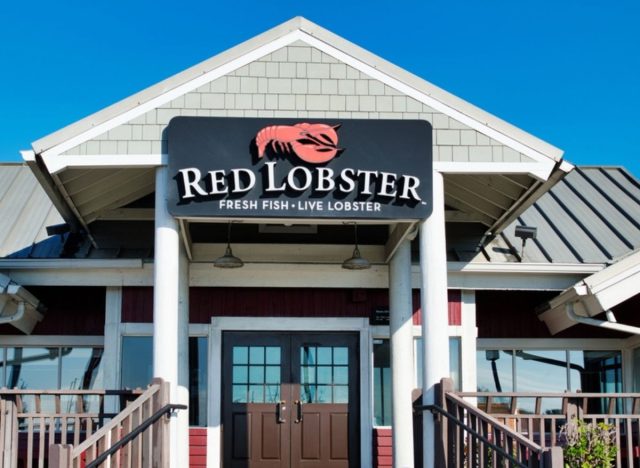
About a week after making headlines for abruptly closing dozens of locations, Red Lobster announced it had filed for Chapter 11 bankruptcy. Jonathan Tibus, Red Lobster's CEO, said in a press release that the bankruptcy will enable the company "to address several financial and operational challenges."
The seafood chain said it would use the proceedings to promote operational improvements, reduce locations, and sell "substantially all of its assets." Court documents reveal that Red Lobster has an estimated $1 billion to $10 billion in assets and liabilities.
Over the years, Red Lobster has struggled with several issues, including high food and labor costs and significant operating losses, which include the $11 million loss tied to its Ultimate Endless Shrimp deal. The company subsequently began investigating the role that Thai Union, Red Lobster's former majority owner, played in the popular promotion, according to Reuters.
In good news for Red Lobster fans, the seafood chain is getting a second chance following all its financial woes. The lender Fortress Investment Group has come forward to buy Red Lobster out of bankruptcy.
Tijuana Flats
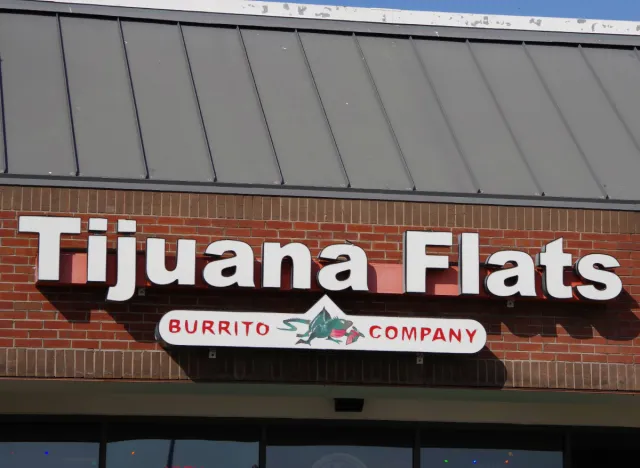
In April, Tijuana Flats, the Florida-based Tex-Mex restaurant chain, shared several restructuring plans, one of which was filing for Chapter 11 bankruptcy protection. According to Restaurant Business Online, the chain has nearly $19 million in debt.
Along with announcing the bankruptcy, Tijuana Flats shared that Flatheads, LLC. acquired the chain. The company noted in a press release that its strategic review, which began in November 2023, drove the new ownership and bankruptcy filing.
The changes for Tijuana Flats didn't stop at a bankruptcy filing and new owner. The restaurant chain also closed 11 restaurants, 10 of which were in Florida and one of which was in Virginia, according to a company representative. The company said these closures stemmed from "a unit-by-unit analysis of financial performance, occupancy costs, and market condition."
The chain has closed 40 locations since the year began. Restaurant Business Magazine reported that Tijuana Flats has attributed some of its financial struggles to rising food and labor costs after the pandemic, as well as shifts in consumer spending. In addition to this, the chain's menu expansion in 2021 required more equipment and staff, resulting in slower service times, increased costs, and lower customer satisfaction, according to the filing. This ultimately led to a decline in sales.
Boxer
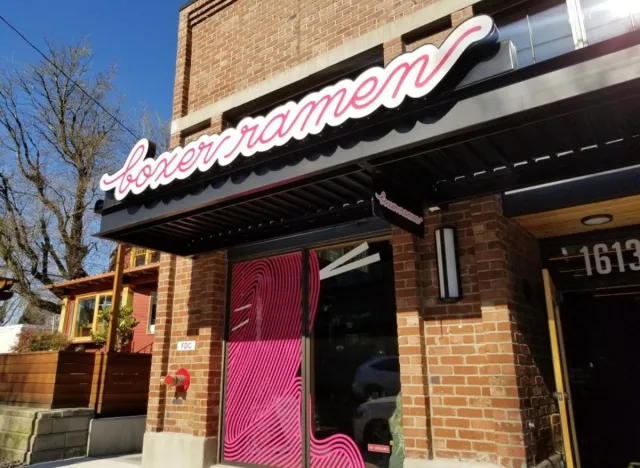
At the end of April, Boxer, a small Portland, Ore.-based Ramen chain, announced via Instagram that it will be closing all four of its restaurants on May 29 after filing for Chapter 11 bankruptcy with its sister chain SuperDeluxe in February. In its Instagram post and on its website, Boxer said the closures were due to a combination of pandemic-related challenges and inflation.
"Despite the tireless efforts and dedication of our incredible team, and the unwavering support from all of you, our family and friends, it has become impossible to continue operating," Boxer wrote.
Before filing for bankruptcy in February, Boxer had opened two new restaurants—a Beaverton, Ore., location in December 2023, and a Multnomah Village, Ore., location in January 2024.
Beyond Boxer's closures, SuperDeluxe, which once operated five restaurants, now has just three locations.
Sticky's Finger Joint
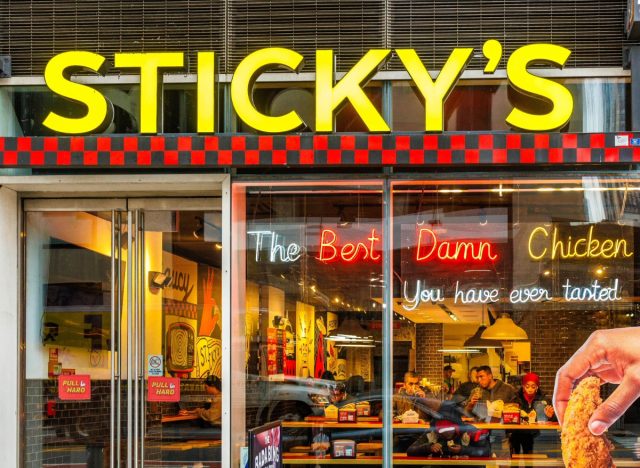
After struggling with pandemic-related issues and various legal troubles, New York-based Sticky's Finger Joint filed for Chapter 11 bankruptcy at the end of April. During the pandemic, the chicken tender chain experienced decreasing sales and restaurant closures and now operates just 10 locations. Sticky's also said its financial issues resulted from the increased reliance on third-party delivery channels, as well as low foot traffic in New York City following the pandemic, according to Restaurant Business Online.
Beyond its financial struggles, the chain has gotten sued multiple times. In 2022, the similarly named, older barbecue chain Sticky Fingers sued Sticky's over trademark infringement. A year before that, a court awarded Sticky's landlord $600,000 in damages after the chain left its lease early. Although Sticky's appealed this, the case resulted in a "financial strain," according to Restaurant Business Online.
Popeyes
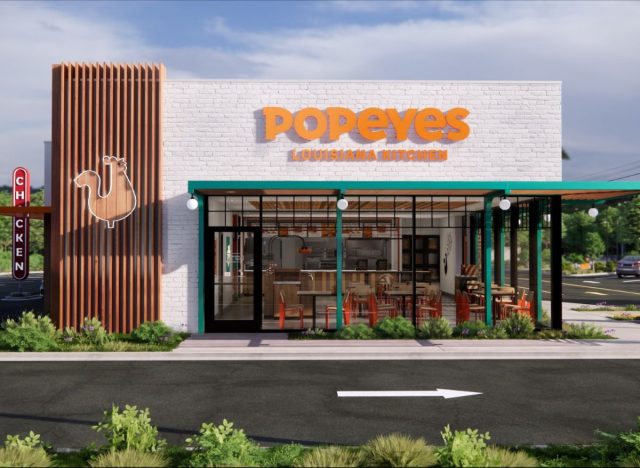
At the end of January, RRG, a 17-unit Popeyes franchisee filed for Chapter 11 bankruptcy and attributed this to three underperforming restaurants. According to the filing, the restaurants "have significantly lost money and caused a financial burden on the continued operation of the remaining restaurants." Additionally, the franchisee fell behind on the lease payments of its profitable locations and must pay them back to avoid lease termination. The filing notes that RRG plans to continue operating its business during the bankruptcy while closing its "poor performing locations."
The franchisee owes rent to at least 11 entities, with one landlord owed as much as $238,595.13 according to Restaurant Dive. This is the second Popeyes operator to file for bankruptcy since last March.









